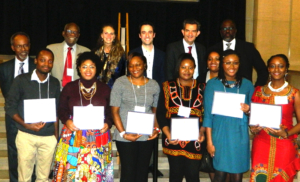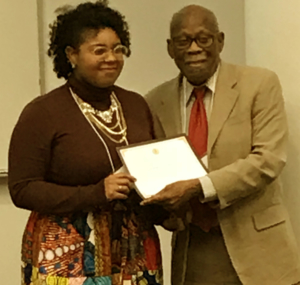Call for Research Interns
Living History: 100 Years of Black History, Culture and
Heritage
Black immigrants have made significant cultural, artistic, and social contributions to
present-day Montréal; however, this history is often overlooked and rarely told. By collecting
and sharing the memories of our oldest community members, the Living History project seeks to
preserve Montréal’s Black anglophone history by highlighting the voices of those individuals
who helped to create it.
Project Goals
Beginning in the early 1900s with the burgeoning Saint Antoine district, Living History
will trace the development of Montreal’s Black community through significant institutions, like
the Negro Community Centre, and artistic innovations, such as jazz. The project then turns to the
increased immigration of the later 20th century, exploring its political and cultural ramifications
in events such as the Sir George Williams Affair and celebrations like Caribbean Carnival.
Ultimately, Living History will celebrate the diversity of Montreal’s Black English-speaking
community, while also emphasizing the cooperative work of our predecessors in creating the
Montréal we see today.
With the support of Heritage Canada, Living History will create 15 memoryscapes of
sites, organizations, and landmarks of cultural and historical significance to Montréal’s Black
anglophone community. These oral histories will enable listeners to experience the hidden
history of a place by listening to the memories of its past and present inhabitants. We are
currently seeking 15 Black youth to be responsible for the creation of these memoryscapes.
Living History is an opportunity to learn about our past while leaving a documented history for
future generations.
Term: December 2018-June 2019
Qualifications
– Black youth (age 16-35)
– English speaking (necessary)
– French speaking (an asset)
Requirements
– Time commitment of 2 to 10 hours per month of the internship
– Attendance at 8 Living History workshops (included in monthly time commitment)
– Conducting 2 oral interviews with community members
– Creation of an audio-recorded memoryscape
Skills and Experience Gained from Internship
Participants cannot receive financial remuneration for their internship. However, they will
develop a transferable set of skills valuable for future academic and professional endeavors.
These skills include:
– Research Experience
Interns will be guided through in-depth research of their chosen topic. They will
build familiarity with the resources offered in libraries, while also developing the
skills to understand both primary and secondary historical sources.
– Archival Expertise
Interns will receive specialized training in archival research and archival practice.
One workshop will be dedicated to an understanding of the archival process and
the development of necessary skills for the location and interpretation of archival
sources.
– Oral Interviewing
Interns will receive specialized training in oral history and oral interviewing.
Multiple workshops will be dedicated to the ethical considerations and
interviewing techniques used by oral historians. Interns will build familiarity with
the tenants of oral history, while also developing the skills of cross-generational
communication.
– Audio Production
Interns will receive specialized training regarding the digital production of MP3
files. Multiple workshops will be dedicated to the creation and editing of these
audio files, focusing both on the technical expertise of production and on vocal
training for effective narration.
– Networking and Outreach
Interns will become familiar with tools used in community outreach and
organization. Additionally, interns will build relationships with community
members, participating institutions and academic professionals.
If you are interested in participating in the project please email
us at livinghistory@bcrcmontreal.com.
[gview file=”https://bcrcmontreal.com/wp-content/uploads/2018/11/Living-History-Intern-Call-1.pdf”]




